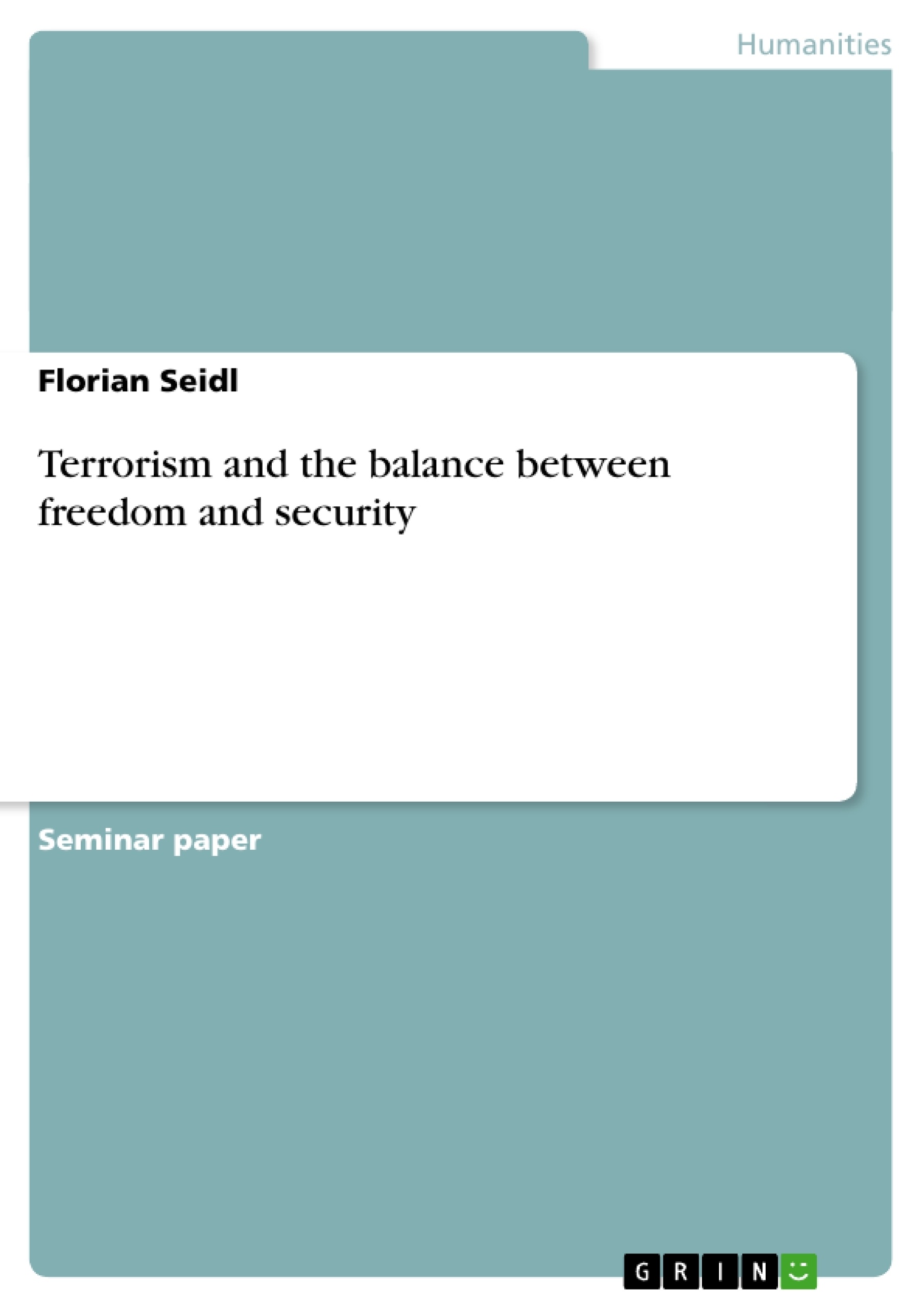The purpose of this paper is to discuss how the reaction to the new quality of terrorism after September 11, 2001 affects the balance between freedom and civil liberties on the one side, and national and public security on the other side. On the example of the Federal Republic of Germany it is examined, what civil liberties are affected and how. Before doing this, the issue of the perception of terrorism is shortly illuminated. The last part of the paper calls for the engagement of social scientists in response to the curbing of civil liberties and finally gives an outlook on the future development of the balance between freedom and security.
Inhaltsverzeichnis (Table of Contents)
- A new quality of terrorism
- Terrorism as social construction
- The balance between security and freedom
- Protection of freedom in the German constitution
- The impact of the new anti-terror laws
- Science as a vocation
- A continuous process?
Zielsetzung und Themenschwerpunkte (Objectives and Key Themes)
This paper aims to examine the effects of the new quality of terrorism on the balance between freedom and civil liberties, and national and public security. The paper focuses on the example of the Federal Republic of Germany to demonstrate how civil liberties are affected by these changes. It also explores the perception of terrorism as a social construction and highlights the importance of social scientists in mitigating the impact of these shifts on civil liberties. Finally, the paper provides an outlook on the future development of the balance between freedom and security.
- The impact of terrorism on civil liberties and national security
- The perception of terrorism as a social construction
- The role of the media in shaping public perceptions
- The impact of new anti-terror laws on constitutional freedoms
- The future of the balance between freedom and security
Zusammenfassung der Kapitel (Chapter Summaries)
The first chapter discusses the development of a new quality of terrorism, highlighting the shift from geographically and ideologically limited threats to a more complex and globalized form of terrorism driven by ideological, particularly religious, motivations. The second chapter explores the concept of terrorism as a social construction, emphasizing the role of labeling and societal reactions in defining the event and determining responses. This chapter focuses on the media's influence in shaping public perceptions and leading to the acceptance of emergency measures.
The third chapter delves into the balance between security and freedom, exploring the trade-offs between these two values and how national emergencies often tilt the balance towards order. The chapter analyzes the constitutional guarantees for freedom in the German constitution and examines the impact of new anti-terror laws on these freedoms.
Schlüsselwörter (Keywords)
The main keywords and focus topics of the text include terrorism, national security, civil liberties, freedom, social construction, societal reaction, media influence, anti-terror laws, German constitution, and the balance between security and freedom.
Frequently Asked Questions
What is the central theme of this paper on terrorism?
The paper examines the balance between civil liberties/freedom and national/public security in the wake of post-9/11 terrorism.
How does the paper view the perception of terrorism?
It explores terrorism as a "social construction," emphasizing how media influence and societal labeling define the event and justify emergency measures.
Which country is used as a specific example?
The Federal Republic of Germany is examined to show how new anti-terror laws impact constitutional freedoms.
What is the role of social scientists according to the text?
The paper calls for social scientists to engage in the debate regarding the curbing of civil liberties and to help mitigate these shifts.
What change in terrorism occurred after September 11, 2001?
The text describes a shift toward a more complex, globalized form of terrorism driven by religious and ideological motivations rather than geographically limited goals.
- Arbeit zitieren
- Florian Seidl (Autor:in), 2005, Terrorism and the balance between freedom and security, München, GRIN Verlag, https://www.grin.com/document/39445



